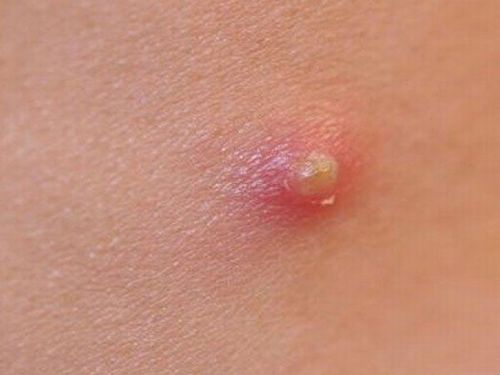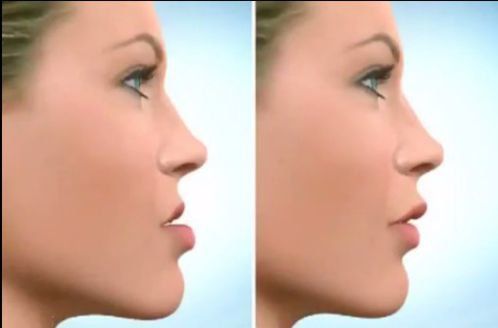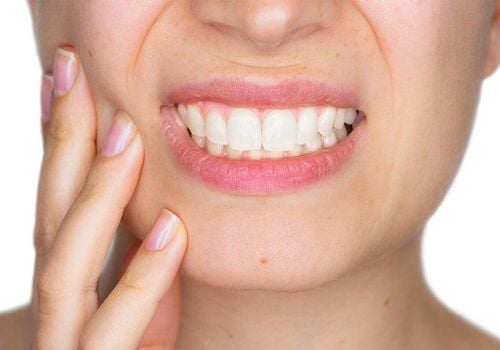Tooth sensitivity is a common issue for women after childbirth, causing pain, discomfort, and poor appetite for the mother. Treating tooth pain after childbirth depends on the underlying cause, such as hygiene issues, calcium deficiency, nutrition, or dental diseases.
1. What Causes Tooth Sensitivity in Mothers After Childbirth?
- Calcium Deficiency: During pregnancy and after childbirth, a woman's body undergoes hormonal changes, and calcium levels decrease as it is shared with the fetus. At this time, mothers' teeth are highly susceptible to bacterial attacks, leading to discomfort and pain.
- Improper Oral Hygiene: Poor oral hygiene after childbirth is a major cause of tooth pain.
- Tooth Decay: When experiencing tooth decay, the pain is prolonged and intensifies at night. The pain becomes more severe when lying down, which affects the mother's daily activities.
- Wisdom Teeth Growth: Wisdom teeth typically emerge between the ages of 17 and 25. Therefore, wisdom teeth can grow while a mother is breastfeeding. The growth of wisdom teeth can cause prolonged pain due to the process of gum separation, and it may also be accompanied by a fever, causing discomfort for the mother.
- Gum Inflammation, Gingivitis, Periodontitis: If the mother does not maintain proper oral hygiene during breastfeeding, plaque and tartar can build up over time, providing a breeding ground for bacteria, which can attack the gums and cause gum disease. Gum disease can lead to bleeding, pain, and significant discomfort in daily activities.
Tooth pain during breastfeeding not only causes discomfort for the mother but also affects the baby because it impacts the mother's ability to chew and eat properly. If the mother’s nutrition is inadequate, it may result in insufficient breast milk, leading to a lack of nutrients for the baby. This can affect the baby’s growth and development and, if prolonged, may cause digestive problems for the baby later on. Therefore, tooth sensitivity after childbirth needs to be treated.

2. How to Treat Tooth Sensitivity After Childbirth?
Treating tooth sensitivity after childbirth depends on the cause of the pain. For mild cases, women can apply some oral care measures to alleviate the symptoms.
For more severe cases, if the care is ineffective, it is recommended to visit a dentist for proper treatment. Mothers should never self-medicate with over-the-counter medicines or creams, as this can seriously affect the sensitive postpartum body and even the breast milk supply.
3. Some Home Remedies for Toothache After Childbirth
Home remedies for tooth sensitivity include simple measures such as proper oral hygiene, calcium and nutrient supplementation, and some straightforward treatment options.
- Proper Oral Hygiene:
After childbirth, women are more sensitive, so it is especially important to pay attention to daily oral care, after meals, and before going to bed. Brush your teeth thoroughly and correctly, rinse your mouth with saline solution to clean and prevent dental issues, and also help prevent colds. Additionally, flossing can help clean plaque buildup on teeth; avoid using toothpicks, as they can injure the gums.
- Ensure Proper Nutrition:
Supplementing foods that are good for teeth and rich in calcium at an acceptable level is an essential step that should not be overlooked. Fruits that are rich in vitamin C, such as oranges, lemons, grapefruits, and guavas, are very beneficial for mothers, helping to strengthen blood vessels and prevent gum bleeding.
After childbirth, mothers should avoid consuming very hot, cold, sour, or spicy foods to avoid irritating their teeth. Foods and drinks containing gas or high acidity should also be limited as they can erode tooth enamel.
Hard and chewy foods that require extensive chewing can negatively impact the tooth structure, so mothers should avoid eating too many of these. Cutting food into smaller pieces can make it easier to eat for those suffering from tooth pain after childbirth.
Some Simple Remedies Using Natural Ingredients:
- Garlic: Peel garlic, cut it into thin slices or crush it, and rub it directly onto the teeth for about 2-3 minutes, performing this 3 times a day to significantly reduce sensitivity. The nutrients in garlic, such as fluoride and allicin, help restore tooth enamel and protect teeth from external stimuli.
- Chewing Green Tea Leaves: Chew a few green tea leaves for about 5 minutes, then brush your teeth as usual, cleaning off any leftover leaf residue. Do this 2-3 times a day.
This method is very effective for treating tooth sensitivity after childbirth thanks to fluoride, tannic acid, catechins, and other nutrients that support the formation of a protein enamel layer, which helps protect the teeth. Tannic acid also prevents the dissolution of calcium, reducing tooth sensitivity.

4. Treating Tooth Pain After Childbirth at Medical Facilities
If tooth sensitivity persists after childbirth, women should visit a dentist immediately to identify the cause and find an appropriate treatment method.
- If the outer surface of the tooth is worn and the dentin is exposed:
In this case, the dentist may proceed with dental fillings. - If the Tooth Enamel is Worn Down:
If the tooth enamel is worn down and sensitivity is excessive, the dentist may recommend remineralization. This is a process of eliminating tooth sensitivity by applying artificial enamel to the affected area. - If the Tooth is Severely Decayed:
If the cause of sensitivity is tooth decay, the best solution is to perform dental fillings. Dental fillings replace the lost tooth material with restorative material to protect and restore the tooth’s appearance.
If the decay has reached the pulp, the dentist may perform root canal treatment and apply a dental crown. Since root canal treatment requires the use of anesthesia, the dentist will assess the mother's health before proceeding. If the mother's health is unstable, the dentist may consider postponing the treatment and provide appropriate support. - If Wisdom Teeth Are Growing:
Wisdom teeth growth after childbirth is less common, but if the teeth are severely misaligned and cause excessive pain affecting the mother’s health and eating ability, the dentist may consider extracting the wisdom teeth.
5. Can Breastfeeding Women Have Tooth Extractions?

Tooth extraction is usually recommended as a last resort when a tooth cannot be preserved. However, it is not always performed immediately. A tooth extraction can still be done during breastfeeding if the mother’s health is stable and there are no contraindications.
Typically, the dentist recommends tooth extraction in cases of severe decay that cannot be restored, advanced periodontal disease, infected bone pulp with complications, or when the tooth is infected.
Experiencing tooth sensitivity is something no woman after childbirth wants. However, proper treatment is essential.
Since postpartum women are very sensitive, it is important to seek treatment from a reputable dental clinic for proper diagnosis and care. Currently, Vinmec International General Hospital offers high-quality dental services with expert doctors providing direct consultation and treatment.
To arrange an appointment, please call HOTLINE or make your reservation directly HERE. You may also download the MyVinmec app to schedule appointments faster and manage your reservations more conveniently.













